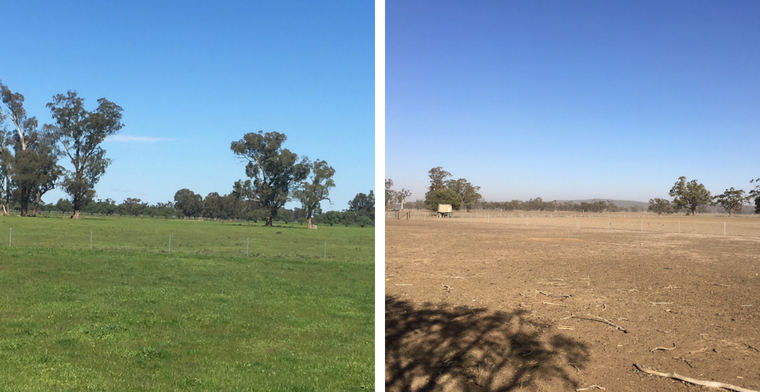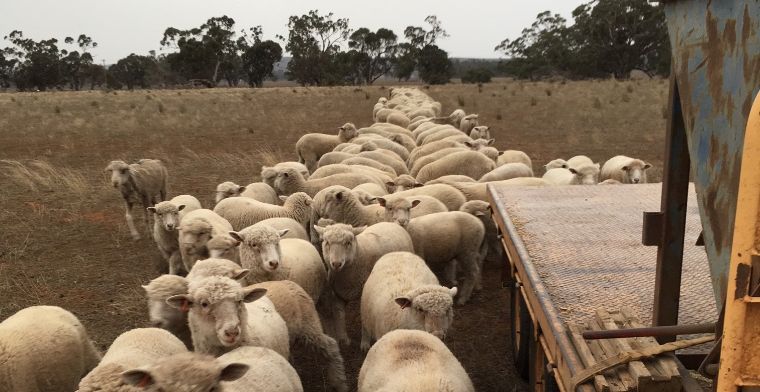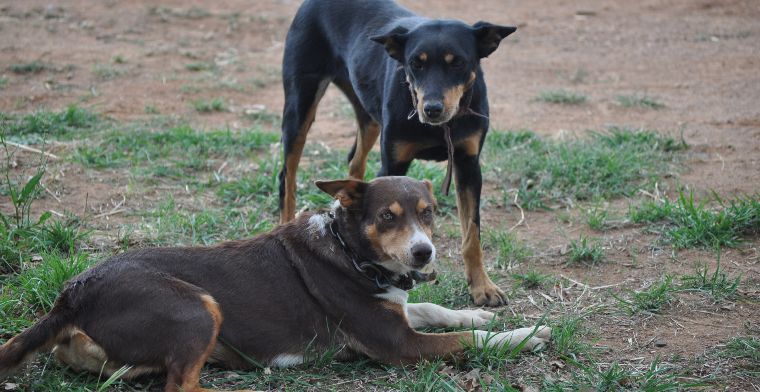By: Katrina Roe
Farmers across our nation are doing it tough right now. They want you to know that. But how much do you really understand about how this drought is affecting our country?
Ruth Klingner runs a mixed farm – both livestock and cropping – based in Forbes in the Central West of NSW. Ruth said the drought has impacted nearly all of the Central West to varying degrees.
“It’s just so dry and it’s been a combination of a series of seasonal events, not only this year, but last year and the year before as well,” she said.
That’s put even the best prepared farmer under immense pressure right now. Here’s what they want you to understand about their situation.
1 – Aussie Farmers Do Take Good Care of Their Animals

While many Australians are concerned by distressing images they see in the media, Ruth wants city dwellers to know that most farmers do everything they can to keep their animals alive and healthy.
“Most farmers are doing a really, really good job of looking after their animals,” she said. “We see in the media a lot of pictures of the worst case situations. It’s tragic when things get to that stage. But know that most farmers are doing a really good job.”
Ruth says that wildlife and stock in her area are surviving, but not necessarily thriving.
“Animals like kangaroos are getting enough, they’re helping themselves to what the sheep are being fed,” she said. “You feed your sheep every single day, you give them their full rations, but there’s nothing like green grass for them to do well.
“We feed them not only grain and hay but we give them supplements as well. So just like you might take your multivitamin tablet, we actually give them a lick that has all of the different vitamins and minerals in it as well, to try and keep the sheep as healthy as possible.”
2 – It Takes a Long Time to Recover From Drought
While it’s great to pray for rain, don’t make the mistake of thinking that when the rain comes everything is fixed. Recovery is a slow process.
“It is a long-term impact,” Ruth said. “Yes, rain is what we need now. But even if we get rain now, we won’t have any feed from that rain for at least six to eight weeks. It will look green, but it’s what you call a green drought – because that green feed has no goodness in it for at least six to eight weeks.”
“For many farmers in the area, they’ve just about maxed-out their loans.”
Many farmers have sold off a large proportion of their animals, which will affect their income for years to come. Then there’s the enormous expense of buying feed.
“That’s money we’ve borrowed, so we have to pay that back,” said Ruth. “And for many farmers in the area, they’ve just about maxed-out their loans.”

Ruth explained the impact in terms of a home loan. “If over the last 20 years you’ve paid a good amount off your home loan and then all of a sudden something goes wrong and you have to max your home loan out, well it takes some years to pay that back—so for many farmers there’s an ongoing financial cost.”
When farmers aren’t making money, it also has a flow-on effect to the local community.
“People are cautious about spending. In a small community, if a shop closes down, that shop will probably never open again. Workers don’t get as much work… and could move out of the area. In a small school, losing even one or two students could force a school to close.”
3 – Drought Has a Big Impact on Kids and Family Time
Ruth is not just a farmer, but also the mother of four children, and the drought takes a toll on the whole family.
“I had thought my kids were coping pretty well as we have been trying to keep them doing all the things they normally do, but I have to stay home and feed sheep while my husband takes them to soccer and things,” she said. “The other day our eldest had a bit of a meltdown. He said, ‘We went to soccer and you fed the sheep, we rode at the rodeo and you fed sheep, we went to Parkes and you fed the sheep… I wish you didn’t have to.’ It breaks your heart as a mother to hear this from your child.”
4 – Drought Has an Environmental Cost

Farmers have to take good care of their land if they want to continue to have a productive farm. But drought brings with it an environmental cost.
“We pride ourselves on trying to keep good ground cover on our farm and running a farm that’s good both for making money for us, but also for the environment,” Ruth explained. “And a drought like this is really hard on that because you lose a lot of your groundcover, and that has long-term consequences. Perennial plants are so important in a farming system, both for environmental health but also for the animals to eat. And in a year like this, sometimes you lose those perennial pastures.”
5 – Your Support Really Does Make a Difference
Something like a drought might sound like an overwhelming problem, but Ruth says that any support from their city friends goes a long way to lifting people’s spirits. It’s been heartwarming to see attention and care from the media and from city dwellers wanting to help out.
“Buying Australian produce makes a big impact on helping Australian farmers long-term.”
“The day in and day out trudge of getting up feeding animals, going to bed, getting up feeding animals, going to bed… it’s nice to see that other people care,” she said.
She also says it makes a difference if we support farmers in our weekly grocery shop, by buying Australian produce. Doing this helps farmers to get a decent price for their animals, so that when the next drought comes they’ve got the money to survive.
“Buying Australian produce makes a big impact on helping Australian farmers long-term,” she said.

Also—Don’t Underestimate the Power of Prayer
As a woman of faith, Ruth is philosophical in the way she approaches the drought situation.
“Ultimately I can’t fix a drought,” she said. “As a Christian I pray to God that he makes it rain—but I actually pray that it’s in the right timing. God does things in his right timing for anything in our lives. Until it rains, pray that he gives us the strength to be able to cope and make the right choices.”
Article supplied with thanks to Hope Media.
About the Author: Katrina Roe is a Morning announcer for Hope Media.

